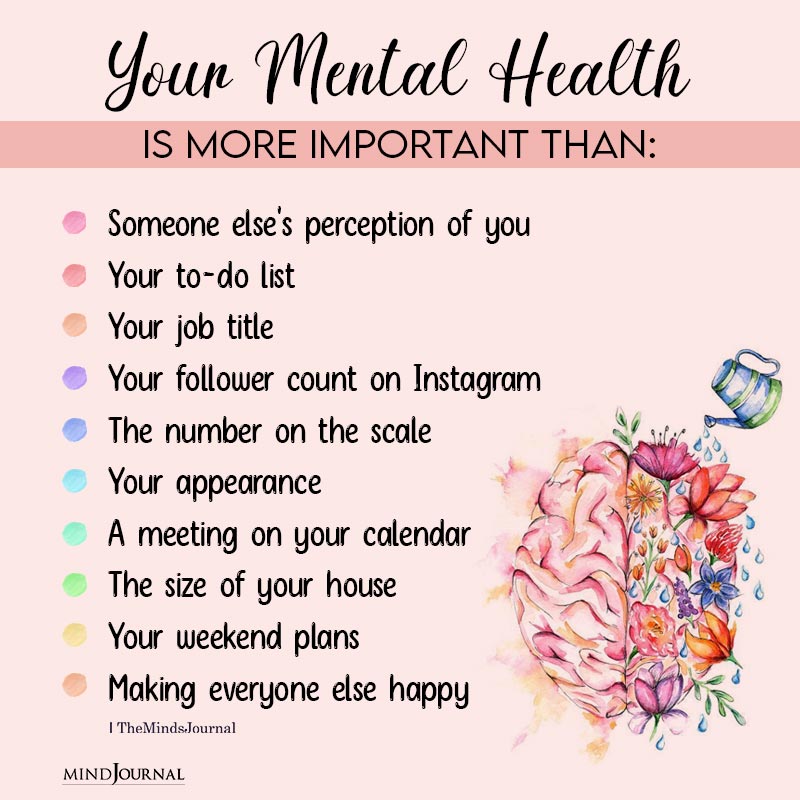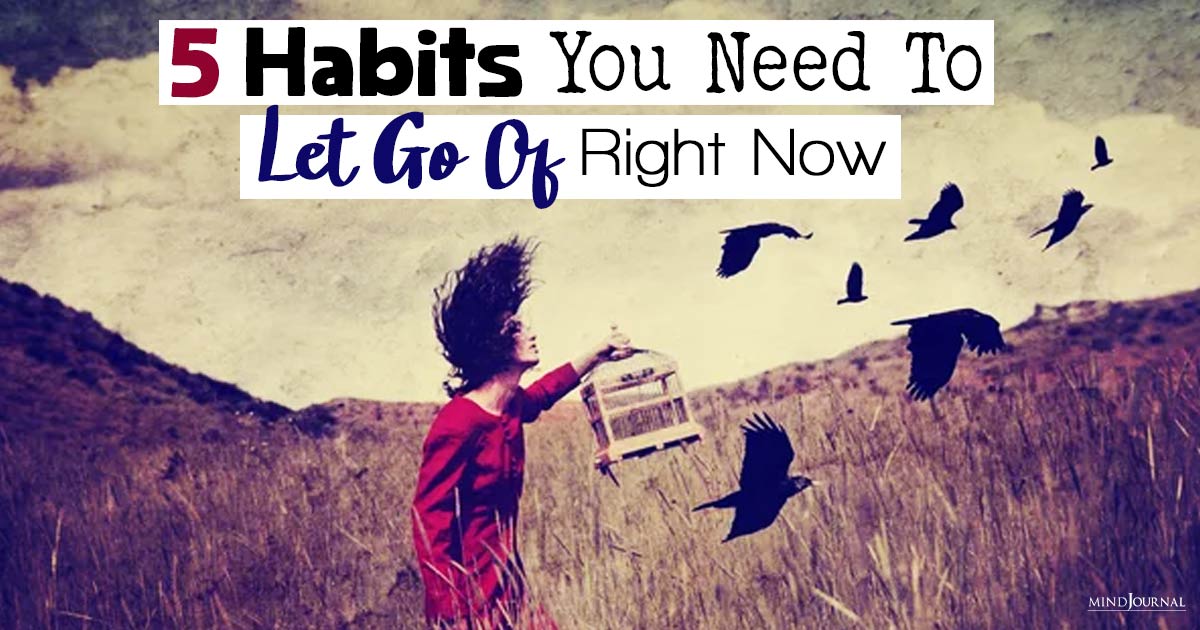Everyone talks about the importance of having good physical health, and a healthy and strong body. But what about mental health, or rather the importance of good mental health? Just like physical health, mental health matters equally.
As caregiver to my mom and sister, both of whom were diagnosed with paranoid schizophrenia, I got good at pretending I was fine. From the outside looking in, I played the role of someone who had it all together.
On the rare occasion when somebody would ask me, “Are you okay?” or “What’s the matter?” my automatic responses would be “I’m fine” and “Nothing.” Few people ever bothered to inquire further. Why would they? I gave them no reason to. And my mental health suffered.
I became an expert at keeping secrets and hiding my real feelings deep inside. Raised in a Sicilian household, our unwritten code was “cosa nostra“: What happened in the family stayed in the family. It’s part of the reason why my mamma went undiagnosed for years.
It’s part of the reason why my little sister suffered in silence, despite being mercilessly bullied in school. And it’s part of the reason why I found myself suicidal, having concluded there was no other way out of my living a life of obligation.
The fear and stigma associated with having any mental health issues shames us into silence. And that’s dangerous. Silence suffocates. Stuffing down our feelings and ignoring them only amplifies our problems. Giving our feelings a voice and demanding that they be heard is essential to good mental health.
Related: Stars Who Have Battled Mental Health Issues And Won Over Them
Why does mental health matter?
The Duke of Sussex Prince Harry when asked about his mental health video series in partnership with Oprah said it best: “I truly believe that good mental health – mental fitness – is the key to powerful leadership, productive communities and a purpose-driven self.”
Asking for help, reaching out and saying, “Hey, I’m not okay,” is a sign of strength, not weakness. Your mental health matters and making it a priority is empowering — for you and for everyone else around you.
And if you have been pretending that everything is fine, here’s a bit more on that plus a few more things to consider stopping.
Your Mental Health Matters: 5 Habits You Need To Let Go Of Right Now
1. Stop Pretending
One of my favourite books is The Four Agreements: A Practical Guide to Personal Freedom by Don Miguel Ruiz. It’s a code of conduct to live by that’s empowering. The first agreement is to be impeccable with your word. Say what you mean and mean what you say.
So if you’re struggling, don’t hide it, don’t apologize for it, and don’t judge yourself, no matter what it is you’re feeling. If you give it a voice, it loses its power over you. You’ll feel so much more free and, in that, you’ll gain clarity over your situation and solutions.

2. Stop Thinking You’re On Your Own
Sometimes, the more self-sufficient and accomplished we are, the more we have a tendency to think we have to do everything ourselves. But the very thing that makes you powerful can be your kryptonite.
And no matter how much of a Superhero you may be, we all have our limits. So before you completely deplete your energy, know that you’re never alone.
Asking others for help not only recharges your mental health but also empowers the person helping you. So start asking for the help you need, even if you aren’t sure what that help might be. Give others a chance to be there for you, just as you’ve been there for them.
3. Stop Listening To Those Voices In Your Head
I’m a big believer in listening to that small voice inside of you, your calling to live your purpose. But there are other voices competing to be heard.
Those are the ones in your head that whisper words of doubt and ridicule and tell you “you’re not good enough” and you should be able to “get over it” or “pull up your big girl pants” or “snap out of it” or “suck it up” or [fill in the blank].
We all have those unsolicited naysayers. When they chime in, it’s hard to get them to shut up. Realizing that those negative thoughts are your fears trying to protect you from getting hurt means that they mean you no harm.
One thing I’ve learned is to let them speak, limit their time, thank them for their opinions, and give yourself permission to ignore them. Remember you’re the boss of them, not the other way around.
Related: 14+ Factors Affecting Mental Health That You Should Be Aware Of
4. Stop Believing Everybody Else Has Their Sh*t Together
Social media is great, especially as it’s allowing us to connect with one another during this isolating pandemic. So when it comes to mental health during this time, that is a lifesaver.
But social media is also a platform for everybody to show off their highlight reels: You know, those pictures of happy faces, partying, vacationing, and always winning.
We love celebrating others’ accomplishments, for sure, but it doesn’t mean they, too, don’t have their own struggles. Chances are, they might appreciate knowing someone else they respect and admire isn’t always okay, giving them permission to share how they’re really feeling, too.
5. Stop Putting Everyone Else’s Needs Ahead of Yours
Self-care is not being selfish. When we take care of our own mental health first, we’re better positioned to care for others. If you have a lot on your to-do list caring for others, I’m not saying to abandon them to fend for themselves.
What I am suggesting is that you prioritize you. Every. Day. Schedule yourself into your appointment calendar, and cancelling is not allowed. By even giving yourself 30 minutes a day, first thing, you’ll be sending a message to yourself that you matter, and your mental health will thank you and reward you for it.

Mental Health Resources
One of my favourite quotes is “Be bold and mighty forces shall come to your aid“; here are some resources that are at the ready whenever you are:
The Centers for Disease Control and Prevention Mental health tools with a focus on the coronavirus and working from home.
National Alliance on Mental Illness (NAMI) Learn more about mental illness: Mental health conditions such as schizophrenia, PTSD, bipolar, borderline personality disorder, ADHD, OCD, depression, anxiety, eating disorders, suicide, addiction and others.
The American Psychology Association APA is the leading scientific and professional organization representing psychology in the United States, with more than 121,000 researchers, educators, clinicians, consultants and students as its members.
Heads Together Heads Together is a mental health initiative spearheaded by The Royal Foundation of The Duke and Duchess of Cambridge, which combines a campaign to tackle stigma and change the conversation on mental health with fundraising for a series of innovative new mental health services.
National Suicide Prevention Lifeline The Lifeline provides 24/7, free and confidential support for people in distress, prevention and crisis resources for you or your loved ones, and best practices for professionals.
Related: Men Tell Us What They Wish Other Men Knew About Mental Health: 5 Bitter Truths
Essential Work From Home Tools To Help You Not Go It Alone You’re stuck in survival mode, but desperately want to THRIVE in this work-from-home world. These tools with free you from stress and isolation. Don’t go it alone.
Want to know more about the importance of good mental health and why mental health matters? Check this video out below!
Writing is healing and therapy for me and others I coach. Check out my latest books and give yourself a break with the read: https://madnesstomagic.com/books/
Written By Paolina Milana Originally Appeared On Madness To Magic










Leave a Reply